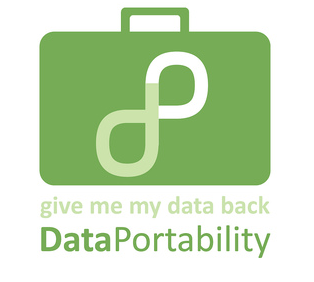 Who owns your friends (or rather the list of who your friends are and how they are connected to you) has been a big source of debate in the social networking world. Control over that data is what makes social networks like Facebook, MySpace and LinkedIn so potentially valuable. Yet there has also been a movement afoot towards letting people take their friends with them, if you will, to other sites. In an interview with Tim Berners-Lee, the father of the Web takes social networks to task for hoarding data. The interview, conducted by Paul Miller, focuses mostly on the Semantic Web, which to Berners-Lee is all about linked data.
Who owns your friends (or rather the list of who your friends are and how they are connected to you) has been a big source of debate in the social networking world. Control over that data is what makes social networks like Facebook, MySpace and LinkedIn so potentially valuable. Yet there has also been a movement afoot towards letting people take their friends with them, if you will, to other sites. In an interview with Tim Berners-Lee, the father of the Web takes social networks to task for hoarding data. The interview, conducted by Paul Miller, focuses mostly on the Semantic Web, which to Berners-Lee is all about linked data.
The interview is long and has everything you ever wanted to know (and more) about the Semantic Web (a set of evolving technologies to make the Web more readable by computers). But about 42 minutes into the interview (transcript here), is one of the most interesting parts. Berners-Lee says data on the Web is the new links, and Websites should stop keeping it to themselves:
I think, it is a very grown-up thing to realize that you are not the only social networking site… otherwise it is like a website which doesn’t have any links out. In the Semantic Web similarly, if you don’t have any links out, well, that’s boring.
In fact, a lot of the value of many websites is the links out.
Now if you look at the social networking sites which, if you like, are traditional Web 2.0 social networking sites, they hoard this data. The business model appears to be, “We get the users to give us data and we reuse it to our benefit. We get the extra value.”
So, first of all, are they going to let people use the data? I think, the push now, as we’ve seen during the last year, has been unbearable pressure from users to say, “Look, I have told you who my friends are. You are the third site I’ve told who my friends are. Now, I’m going to a travel site and now I’m going to a photo site and now I’m going to a t-shirt site. Hello? You guys should all know who my friends are.” . . . So, the users are saying, “Give me my data back. That’s my data.”
Of course, social networks are already moving in this direction. Last month, everyone from Google to Facebook pledged to work towards this and similar goals by joining the Data Portability Workgroup. And earlier this month, Google took a more concrete step by announcing that it would adopt certain standards in OpenSocial to give developers access to that coveted social graph (the map of connections between friends). The standards are called Friend-of-a-friend (FOAF) and XHTML Friends Network (XFN). And these are some of the same standards Berners-Lee is talking about.
It is one thing to join an industry workgroup, and another to actually implement some of these standards. More people like Sir Tim need to keep nudging the social networks and sites in general in this direction. Remember: data is the new links. Sites that don’t give it out won’t get any back, and eventually may disappear from view.